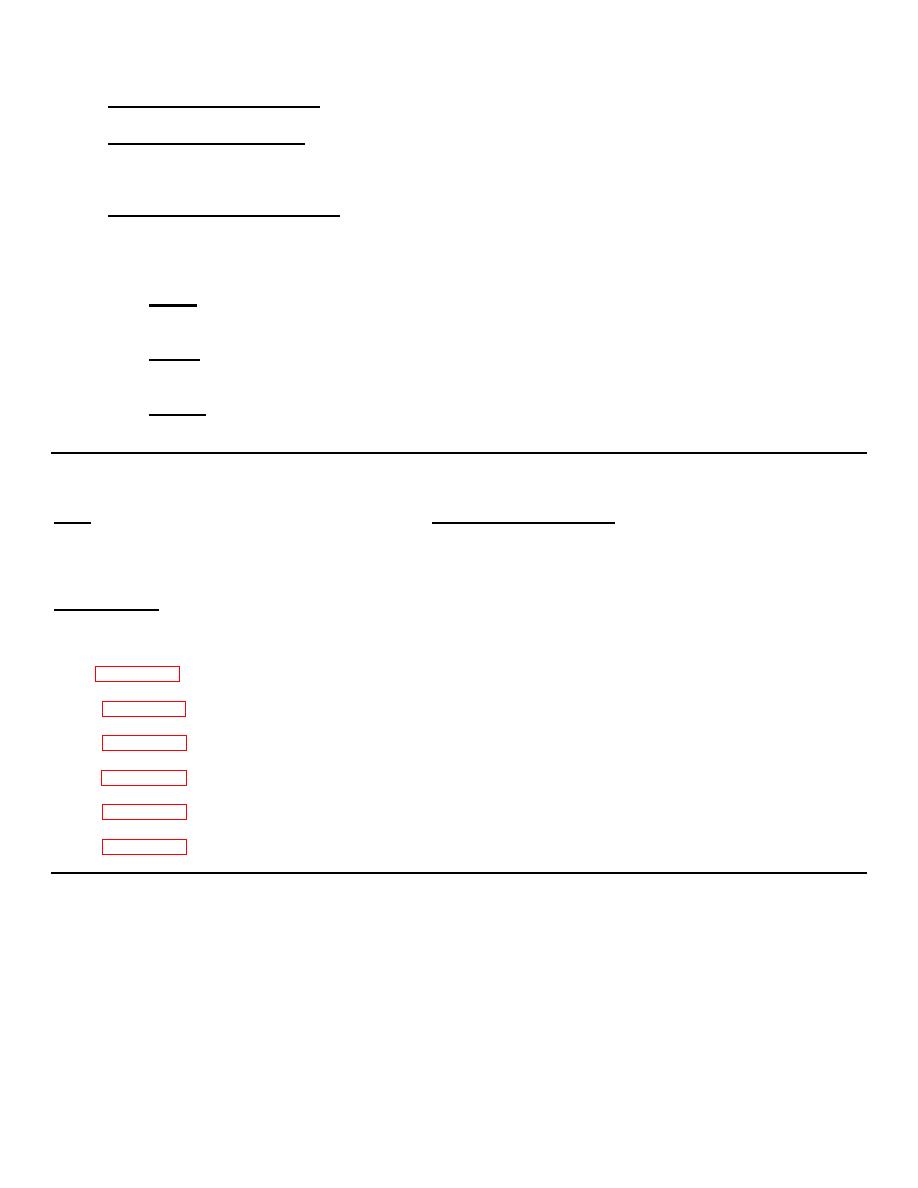
TM 9-4110-255-14
c. Special Information Paragraphs.
(1) Corrosion Prevention Control. If a corrosion problem is identified, it can be reported using Standard Form 368,
Production Quality Deficiency Report. The form should be submitted to the address specified in DA Pam 738750. This
will result in more definitive actions be taken to prevent future occurrences.
(2) Leakage Definition for Unit PMCS. It is necessary for you to know how fluid leakage affects the status of your
refrigeration unit. Oil is carried with the refrigerant as it flows through the refrigeration system. If a leak develops in the
system, the oil will seep out and soak the copper tubing around the leak or drip and soak or puddle on the frame or other
component below the leak. If any oil or seepage is found, a refrigerant leak would be suspected.
(a) Class I. Class I is defined as seepage of fluid (as indicated by wetness or discoloration) but not great
enough to form drops.
(b) Class II. Class II is defined as leakage of fluid great enough to form drops but not enough to cause drops
to drip from item being checked/inspected.
(c) Class III. Class III is defined as leakage of fluid great enough to form drops that fall from item being
checked/inspected.
INITIAL SETUP
Tools:
General Safety Instructions:
Fin Comb
2, Section III, Appendix B
WARNING
Materials/ Parts:
Exposed rotating parts are contained in the
refrigeration unit. Personal injury can result if
battery is connected with doors open.
Wiping Rag
9, Appendix E
Detergent
15, Appendix E
Lubricating Oil (Grade 15/40)
10, Appendix E
Lubricating Oil (Grade 10)
11, Appendix E
Lubricating Oil (Grade 50)
12, Appendix E
Multipurpose Grease
17, Appendix E
4-11


